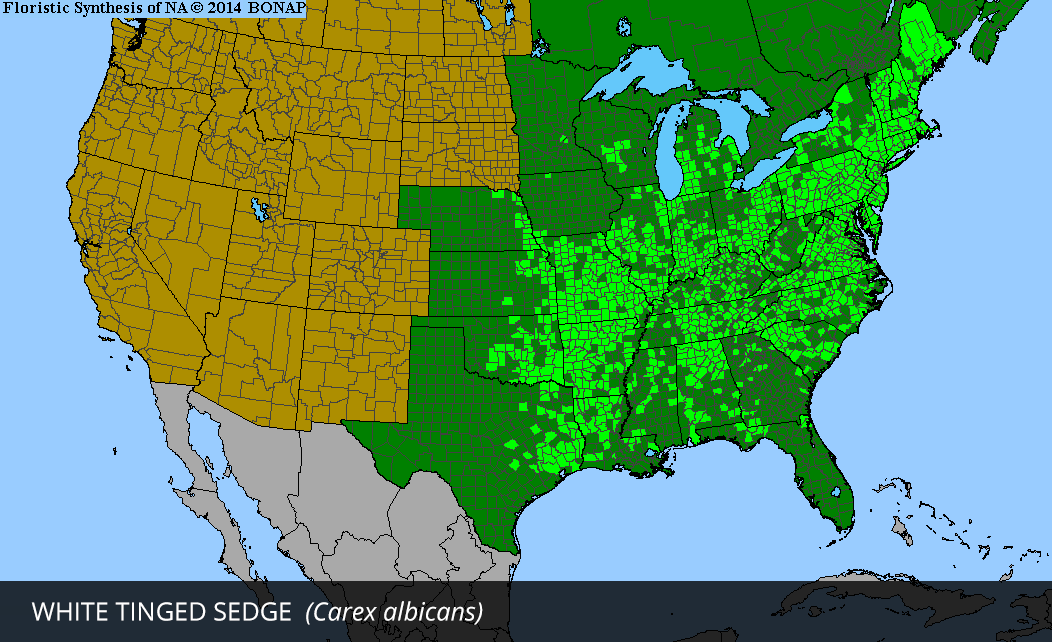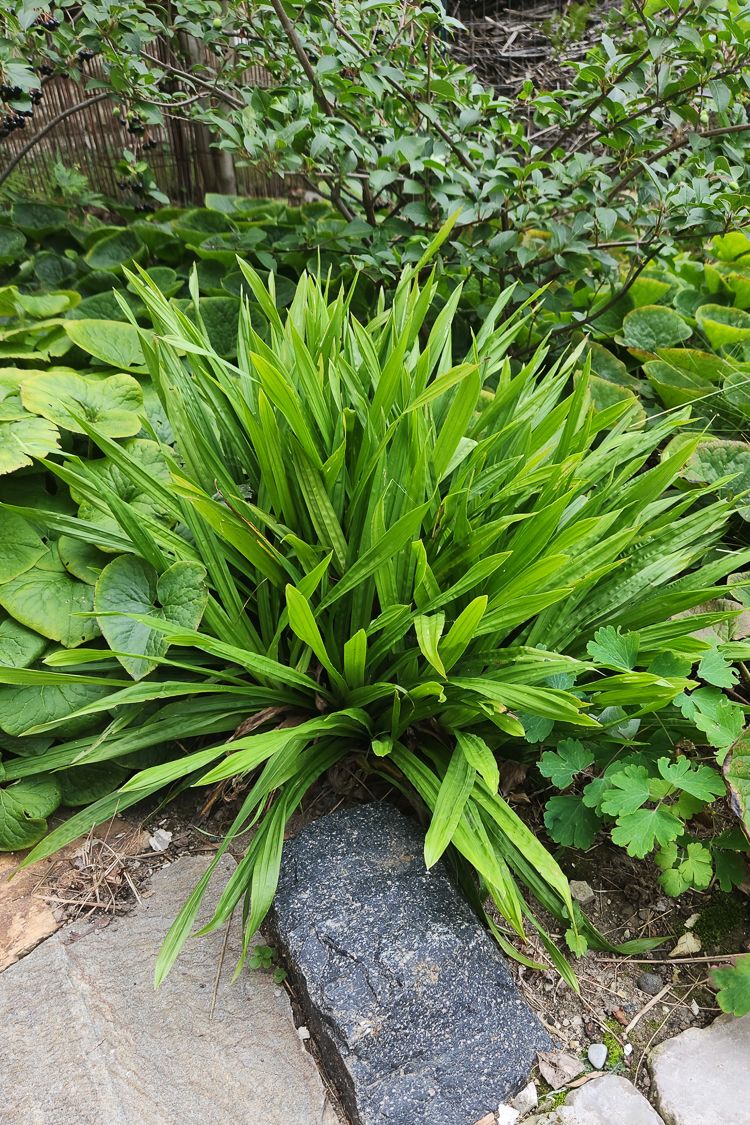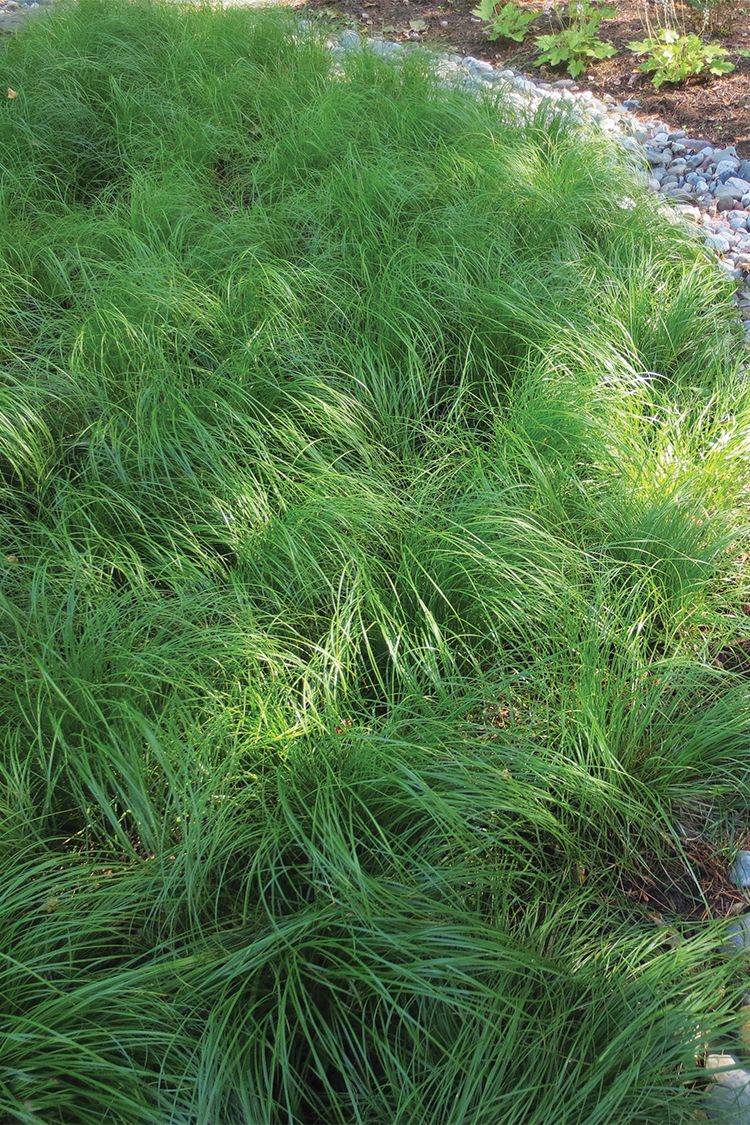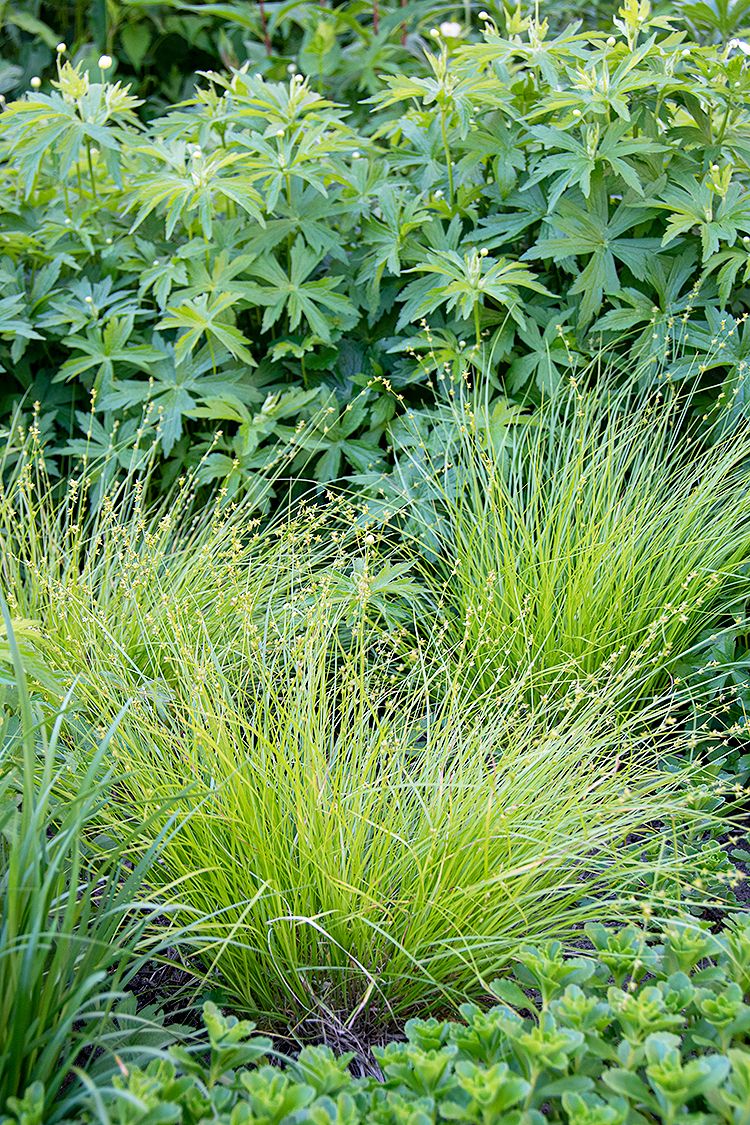White Tinged Sedge
Carex albicans, or White Tinged Sedge, has whispy arching leaf blades and a delicate mounding appearance. The unique flower spikes in late spring may be green, brown or tan, with a distinct white margin. This is an excellent sedge for difficult dry shaded areas …
| Soil Type | Clay, Loam, Sand |
|---|---|
| Soil Moisture | Dry, Medium |
| Sun Exposure | Partial, Shade |
| Height | 1' - 2' |
| Bloom Color | Green |
| Bloom Time | May |
| Spacing | 1' - 18" |
| Zones | 4, 5, 6, 7, 8 |
| Root Type | Rhizome |
| Benefits | Deer Resistant |
White tinged sedge doesn't always get the recognition that it deserves as a top landscape sedge for shade. It has a consistently attractive, soft mounded form. The whispy arching leaf blades, and unique inflorescence with distinct white margins, give it a delicate appearance. Delicate looks aside, this is an excellent sedge for difficult dry shaded areas.
Found mainly in dry upland forests, Carex albicans is drought tolerant, versatile and performs well in the garden and landscape. It is not especially particular about soil type and it adapts well to varying amounts of moisture. Much like Pennsylvania sedge in appearance, but slightly larger, Carex albicans is a good choice for creating a turf-like groundcover in dry shade. The dense tufts will spread, but not aggressively. It intermingles well with many other woodland and savanna perennials, and is a great candidate for the rock garden in semi-shade.







